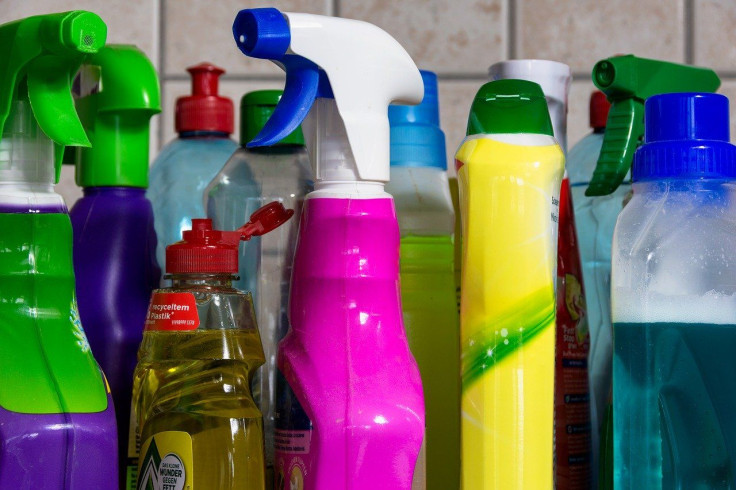Disinfectants Can Kill Coronavirus, But Are They Harmful To Your Health?
Disinfectant cleaners are flying off the shelves during the pandemic as consumers look to fight off the coronavirus, but there are risks associated with frequent use of these cleaning products.
The Environmental Protection Agency has created what it calls "List-N" that features more than 500 disinfectant products that are effective in killing the coronavirus. While these products are safe in most instances, when they are used incorrectly or around people or children with respiratory conditions such as asthma, they can cause serious health conditions.
Here’s what you need to know about using disinfectants in your home to kill off the coronavirus while keeping family members safe:
Hand Sanitizers
Hand sanitizers have become a mainstay in most homes as consumers looks to clean their hands after touching surfaces that could be contaminated. The Centers for Disease Control and Prevention recommends that hand sanitizers have at lease a 60% alcohol concentration to be effective, but it says it does not eliminate all types of germs. It recommends soap and water as the first line of defense against the virus.
The U.S. Food and Drug Administration has warned against hand sanitizers that contain methanol – a wood alcohol that can cause poisoning. Following the agency’s warning, it issued a number of recalls on hand sanitizers, primarily produced in Mexico that contained methanol.
It is also recommended that consumers avoid expired hand sanitizers where the critical ingredients could have evaporated, Annabelle de St. Maurice, assistant professor of pediatrics at UCLA’s David Geffen School of Medicine told The Wall Street Journal.
Disinfectants
Disinfectants can pose their own set of hazards for consumers from ingredients that are known as quats. Quats are the bleach or quaternary ammonium compounds used in cleaning products that if inhaled can causes irritation in some people, resulting in sneezing, coughing, and shortness of breath, the Wall Street Journal said.
Karin Pacheco, an allergist at National Jewish Health told the news outlet, “If you inhale irritants in a high enough concentration, you can cause asthma or upper respiratory problems.”
She recommended using these products in properly ventilated rooms and avoid contact with the skin by wearing gloves.
Risks To Children
Some cleaning products can pose a risk to children who touch surfaces with their hands and then put them in their mouths. This can cause an irritation from products using a quat.
Dingsheng Li, an environmental health professor at the University of Nevada-Reno, told the WSJ he recommends wiping those quat-based products after disinfecting because they tend to stay on surfaces after cleaning.
Long-Term Disinfectant Use
While there can be a tendency to over-clean a surface , associate professor of chemistry at Emory University Bill Wuest told the Journal there is a risk of developing an antimicrobial resistance to quats. He said this makes chemicals less effective on some types of bacteria over time.
He continued by saying, “A lot of people are going on overkill and trying to disinfect everything.”

© Copyright IBTimes 2024. All rights reserved.





















